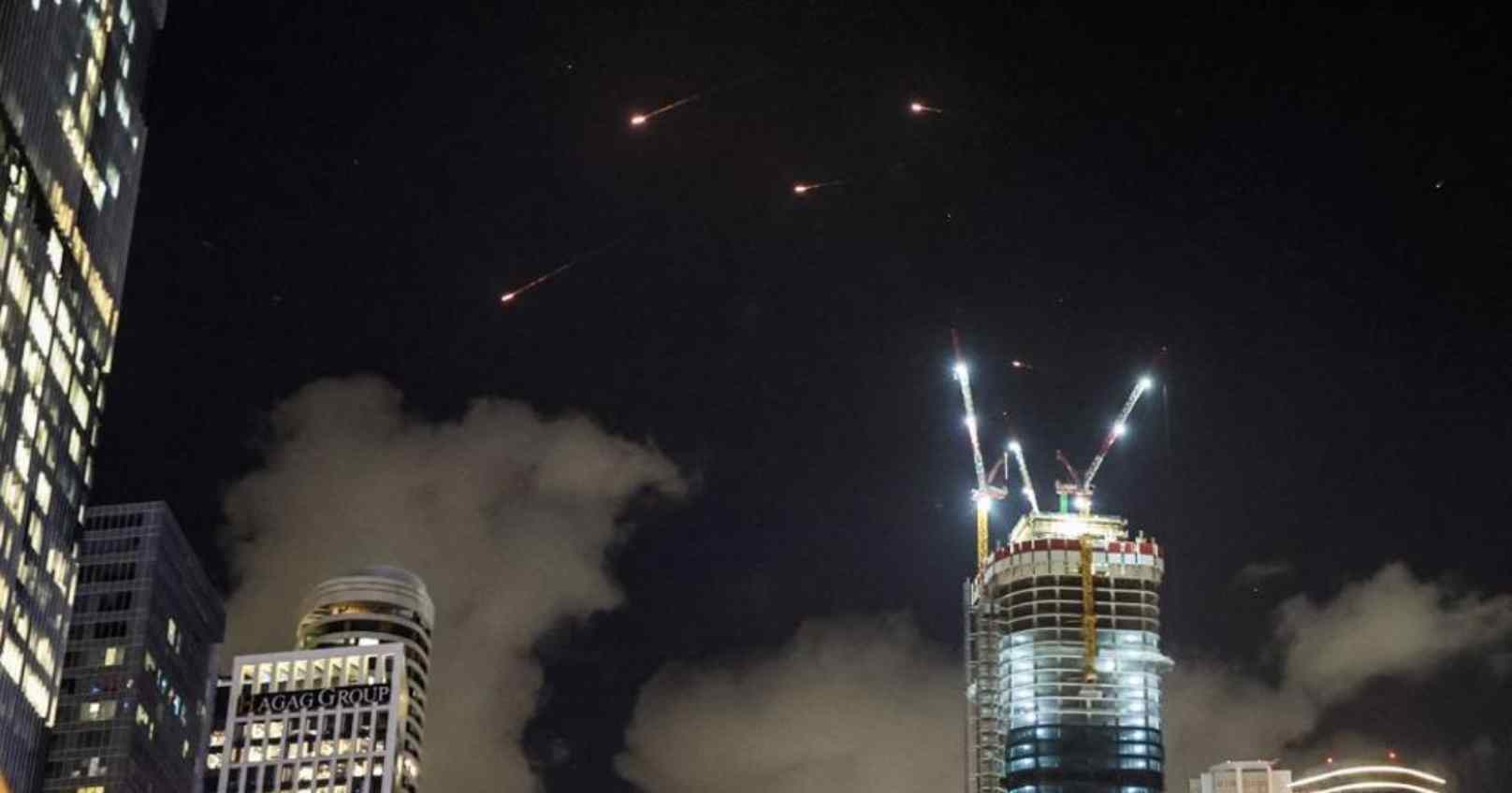Iran’s Revolutionary Guards issued a strong warning to Israel on Wednesday, threatening "crushing attacks" if Israel retaliates for a recent missile strike. This warning comes as tensions in the already volatile region continue to escalate.
The missile barrage targeted Israeli military installations and prompted Israeli Prime Minister Benjamin Netanyahu to pledge swift retaliation, despite Iran declaring that its missile operations had concluded unless further provoked.
In response to the heightened conflict, the Israel Defence Forces (IDF) ordered additional evacuations in parts of Lebanon, including the capital, Beirut, while continuing to strike suspected Hezbollah positions as part of their ongoing ground operations.
On Tuesday, Iran launched a substantial missile attack, claiming to have hit three military bases near Tel Aviv, along with key air and radar facilities. The Islamic Revolutionary Guard Corps stated that "90 percent" of the missiles successfully struck their intended targets, though Israeli officials reported no injuries.
Tehran justified the missile strike as a response to what it termed an "attack on the sovereignty" of Iran, referencing the assassination of Hamas leader Ismail Haniyeh in July. The Iranian government characterized its military actions as defensive and indicated they followed a period of restraint.
Iran warned of "vast destruction" should Israel choose to retaliate and cautioned other nations against intervening, stating that their "interests in the region would also face powerful attacks."
Iran's President Masoud Pezeshkian remarked that a "decisive response" had been delivered in light of Israeli "aggression," asserting that "Iran is not a warmonger, but it firmly opposes any threats." He advised Netanyahu to avoid provoking Iran, emphasizing that the recent missile strike was just a glimpse of Iran’s capabilities.
In response to the missile attacks, Prime Minister Netanyahu stated, "Iran made a big mistake tonight and will pay for it. Whoever attacks us, we will retaliate."
The United States, which had previously alerted about an imminent Iranian ballistic missile attack, described the assault as "defeated and ineffective." White House National Security Adviser Jake Sullivan warned Tehran of serious repercussions.
Israel's security cabinet convened late Tuesday to address the escalating situation. IDF spokesperson Daniel Hagari stated, "This attack will have consequences. We have plans, and we will act at the time and place of our choosing."
During the missile attack, explosions were reported in Tel Aviv, Jerusalem, and the Jordan River valley. The Israeli military released footage of a school in Gadera, a central city, that suffered significant damage due to an Iranian missile.
The IDF confirmed that its missile defense systems intercepted a considerable number of incoming projectiles, and the US indicated it also intercepted some missiles to bolster Israel's defense. Although no injuries were reported in Israel, a Palestinian was killed in the occupied West Bank amid the ongoing conflict.
This missile barrage follows Iran's vow to retaliate for Israeli airstrikes that resulted in the deaths of top leaders from its ally Hezbollah in Lebanon, including the group's leader, Hassan Nasrallah.







